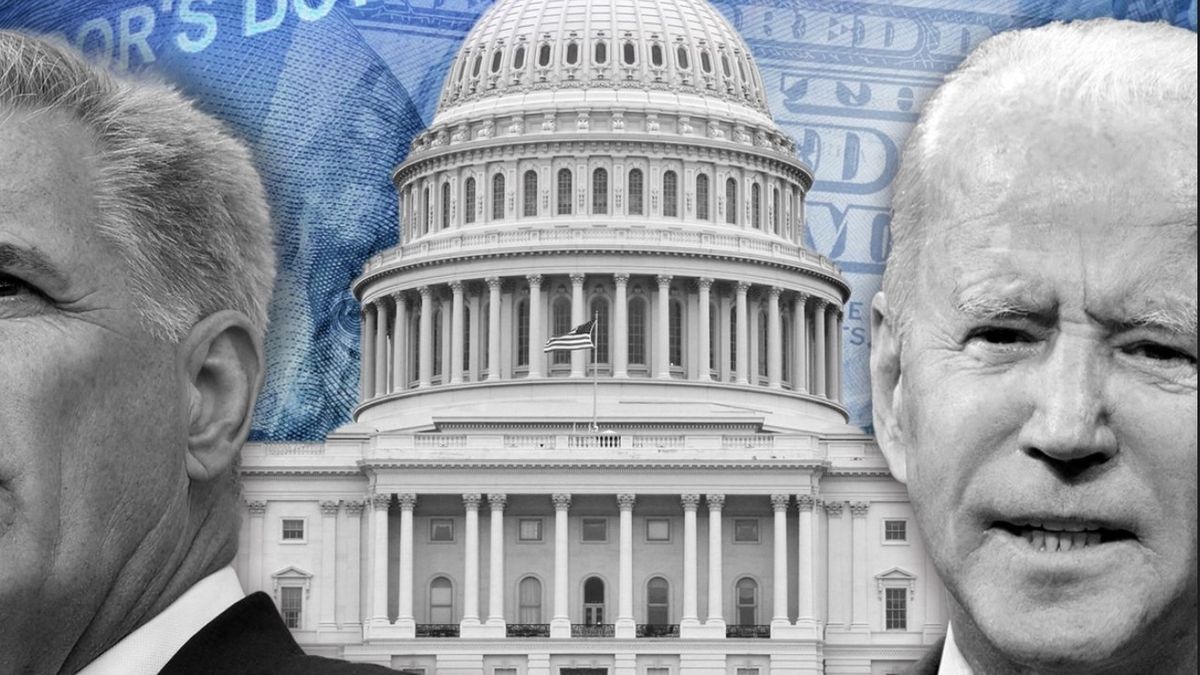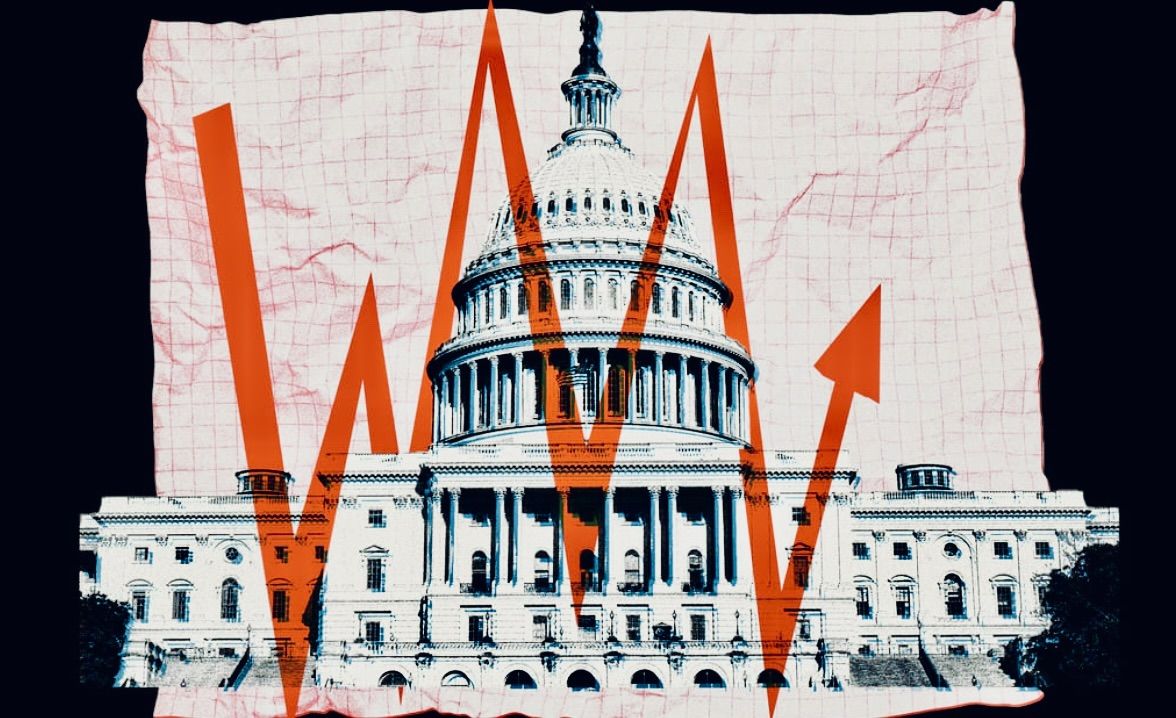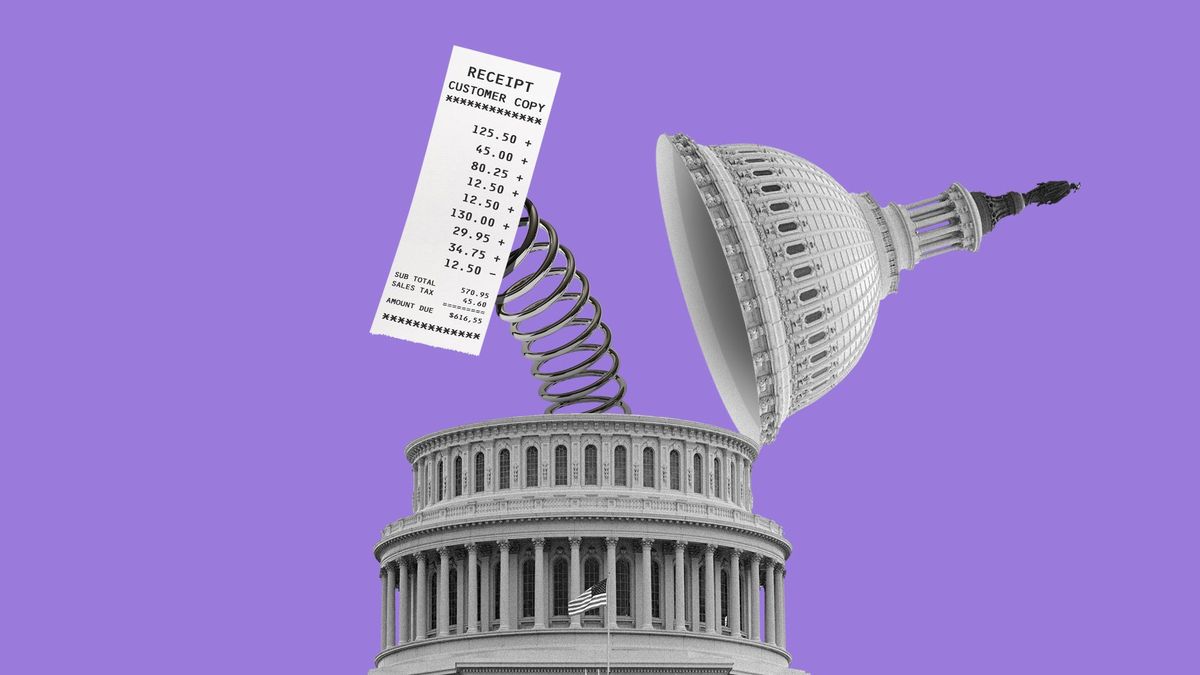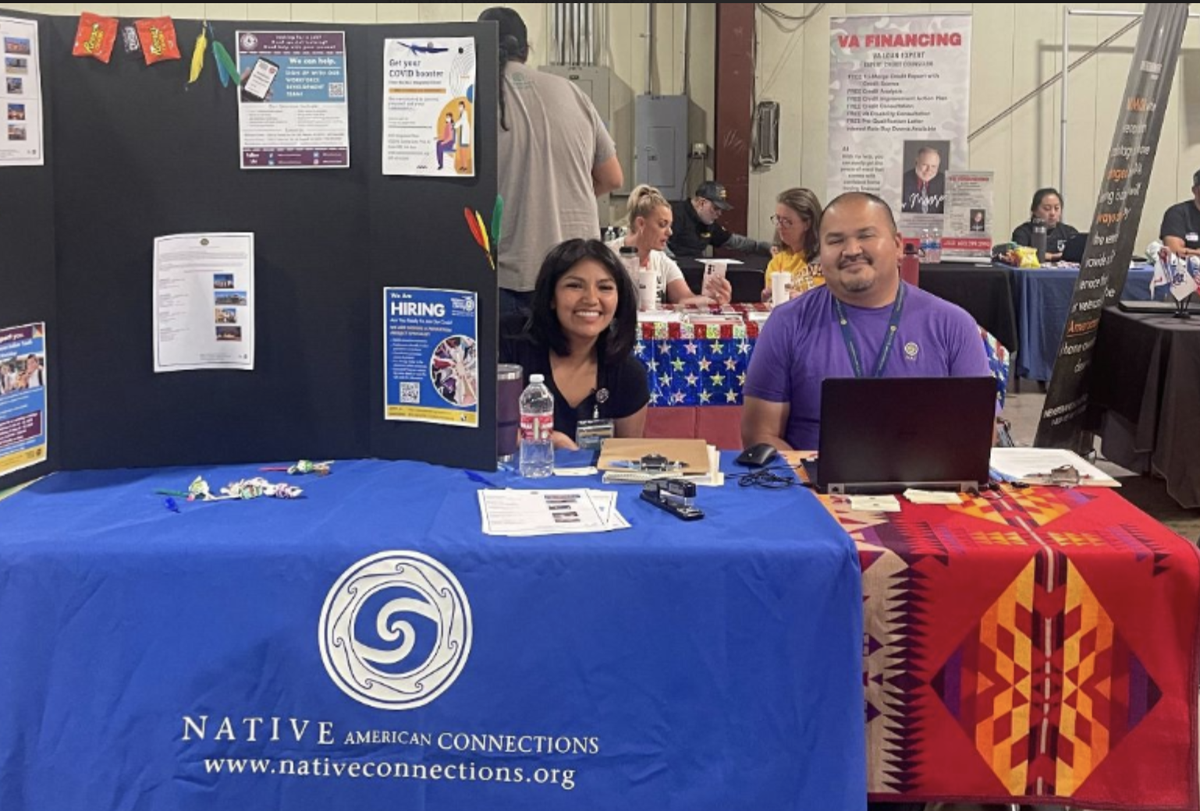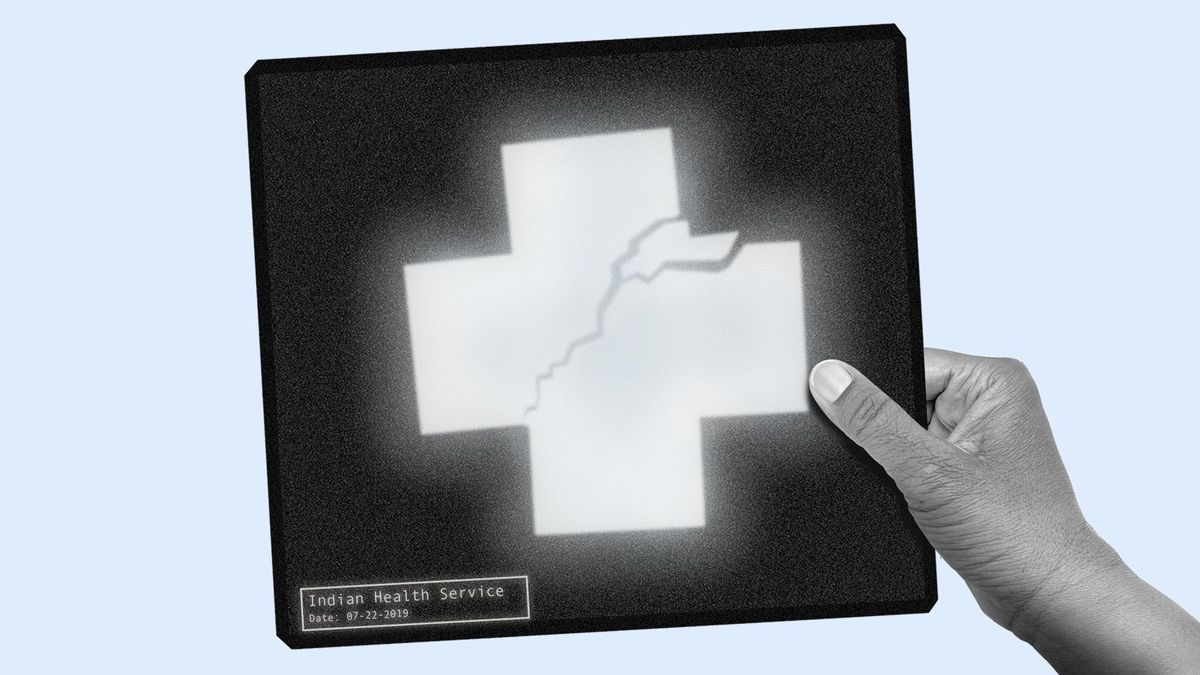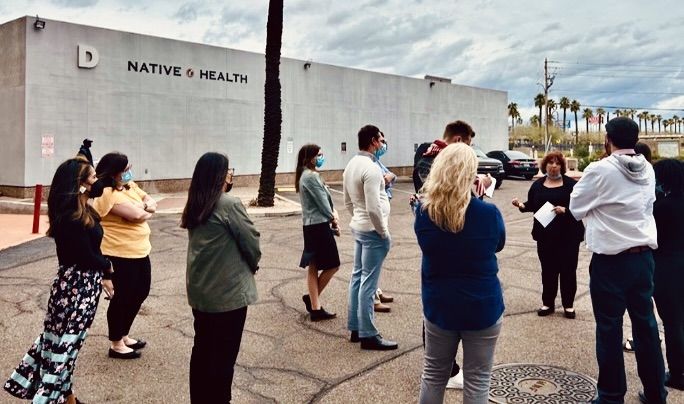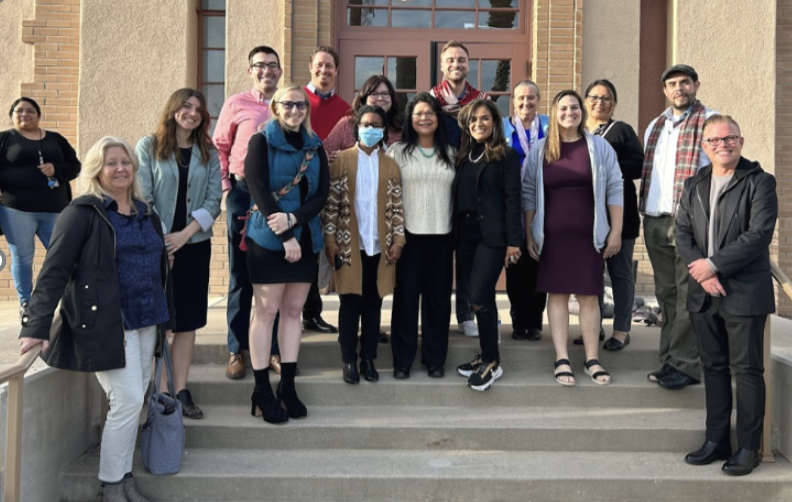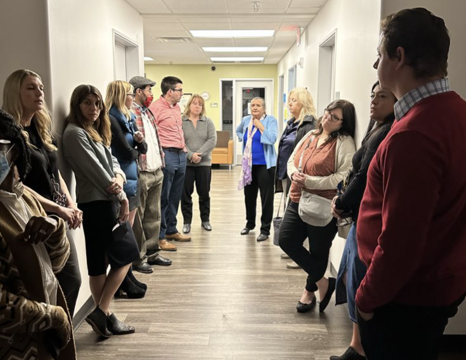The loss of coverage may exacerbate the significant healthcare disparities faced by Native communities.
FOR IMMEDIATE RELEASE
NCUIH Contact: Meredith Raimondi, Vice President of Public Policy, mraimondi@ncuih.org, 202-417-7781
WASHINGTON, D.C. (April 24, 2023) – Today, the National Council of Urban Indian Health (NCUIH), in collaboration with the Asian & Pacific Islander American Health Forum, the Coalition on Human Needs, The Leadership Conference on Civil and Human Rights, the National Association for the Advancement of Colored People, National Urban League, Protect Our Care, UnidosUS and 220 other organizations sent a letter to the Department of Health and Human Services (HHS) Secretary Xavier Becerra. Since Medicaid unwinding may disproportionately harm vulnerable communities, the Consolidated Appropriations Act of 2023 included authorities to protect beneficiaries from losing Medicaid coverage for administrative reasons. For example, according to the Assistant Secretary for Planning and Evaluation, three-fourths of children losing Medicaid will remain eligible but be terminated because of state administrative requirements. The letter calls on the Administration to use the full extent of these authorities to safeguard Medicaid coverage and outlines specific steps the Administration can take to avoid wrongful terminations.
“The unwinding currently taking place will have devastating and disproportionate impacts on Native people. It is estimated that 12% of all Native American children and 6% of all Native adults will lose their Medicaid or CHIP coverage as state Medicaid programs unwind. There is no reason that our people should lose access to necessary healthcare services because of administrative barriers. The federal government must do everything in its power to honor the trust responsibility to Native people and ensure we are not left without coverage,” – Francys Crevier (Algonquin), NCUIH CEO.
Impact on Native Health
In 2019, Medicaid covered 1.3 million urban American Indians and Alaska Natives (AI/ANs), including 30% of urban AI/AN adults under age 65.1 Comparatively, Medicaid covered 19.8% of all urban U.S. adults under age 65.2 Native people may be at an increased risk of disenrollment in Medicaid and CHIP programs during the Medicaid unwinding period. In fact, Medicaid coverage losses are estimated to take twice the toll on AI/AN communities than they will take among non-Hispanic white families. It is estimated that 12% of all AI/AN children and 6% of all AI/AN adults nationwide will lose CHIP or Medicaid coverage as state Medicaid programs return to normal operations. AI/ANs may be at an increased risk of losing Medicaid and CHIP coverage due to administrative barriers during the unwinding. AI/AN beneficiaries face several challenges in enrolling or retaining coverage such as geographical remoteness, limited access to internet or phone service, and language barriers. Inadequate health insurance coverage is a significant barrier to healthcare access, and the loss of coverage may exacerbate the significant healthcare disparities faced by AI/AN communities.
The federal government has a trust responsibility to provide federal health services to maintain and improve the health of AI/AN people. Medicaid and CHIP are critical to fulfilling the United States’ trust responsibility to maintain and improve AI/AN health. Patients at Urban Indian Organizations (UIOs) may lose their Medicaid coverage as a result of the unwinding, and inadequate health insurance coverage or gaps in coverage may cause UIO patients to delay or avoid medical care altogether.
Requests to the Administration in the Letter
The letter requests the Administration take four key steps to protect families:
- CMS mitigation plans should prevent states from wrongfully terminating beneficiaries for purely procedural reasons.
- CMS should hold state and local Medicaid agencies accountable for compliance with civil rights laws.
- CMS should promote transparency and accountability by publishing state unwinding and performance indicator data as soon as possible.
- CMS should hold states accountable for renewing coverage based on data matches “to the maximum extent practicable,” as required by Affordable Care Act.
Background on Medicaid Unwinding
In response to the COVID-19 pandemic, Congress passed a “continuous coverage” requirement which required states to keep beneficiaries continuously enrolled in Medicaid through the end of the COVID-19 public health emergency in return for enhanced federal funding. The Consolidated Appropriations Act of 2023 set an end date for the requirement on March 31, 2023, meaning that states may resume reviewing all Medicaid enrollees’ eligibility for coverage, a process referred to as “unwinding,” on April 1, 2023. As states begin these redeterminations, millions of eligible families, including AI/ANs, could lose coverage due to administrative barriers even though they are still eligible for Medicaid coverage. According to HHS, 15 million people could lose their current Medicaid or CHIP coverage.
Full Letter Text
The Honorable Xavier Becerra
Secretary, Department of Health and Human Services
200 Independence Ave., SW
Washington, D.C. 20201
Dear Secretary Becerra:
In just two years, the Biden-Harris Administration has made incredible progress promoting health equity and bringing millions of people the financial security and health care access that result from high-quality, affordable health coverage. We are grateful for your team’s extraordinary work, led by Centers for Medicare & Medicaid Services (CMS) Administrator Chiquita Brooks-LaSure and Deputy Administrators Daniel Tsai and Ellen Montz, to preserve struggling families’ health care as Medicaid continuous coverage requirements unwind.
In light of these accomplishments, we remain concerned that unwinding could cause the largest Medicaid losses in history, with disproportionate harm experienced by communities of color, mothers, and children. To prevent a civil rights and health equity disaster, we urge you to make the strongest possible use of the powers recently granted by Congress for holding states accountable to preserve eligible families’ health care.
Without vigorous federal intervention, state Medicaid programs are likely to operate as they did in the past. If that happens during the unwinding, the Assistant Secretary of Planning and Evaluation (ASPE) projects that 15 million people will be terminated. Such losses would greatly exceed the largest previous annual drop in Medicaid coverage, when the number enrolled fell by 2 million in 2018 and again in 2019.
Unprecedented Medicaid terminations, focused on historically disadvantaged communities, would deepen already severe health inequities. More than half of those whom ASPE expects to lose Medicaid are people of color, including nearly 5 million Latinos, more than 2 million African Americans, and almost 1 million Asian Americans and Pacific Islanders. Other research suggests that nearly 7 million children are at risk of losing coverage, and that children of color are particularly vulnerable. Among all Black children in America, 13% will lose Medicaid if the program operates as it did in the past, as will 12% of all Native American children, 12% of all Latino children, 10% of all children who are Native Hawaiians or Pacific Islanders, and 6% of all Asian American children in the United States.
Needless red tape and bureaucracy threaten to take a terrible toll. More than half of all people of color and three- fourths of all children losing Medicaid will remain eligible but be terminated because of state administrative requirements, according to ASPE. These projections fit recent history, when states like Tennessee, Texas, and Utah redetermined numerous families and saw huge coverage losses. In each state, more than 80% of all terminated families were dropped only because the state did not receive a response to its requests for information. This happened when forms were mailed to the wrong address or never delivered, the family did not understand the forms, the family could not reach a Medicaid call center to provide requested information, renewal procedures were not accessible to people with limited English proficiency or people with disabilities, or for other reasons.
The Consolidated Appropriations Act, 2023, (CAA) gave you unprecedented authority to prevent such patterns from recurring on a vastly larger scale during the unwinding. If a state does not fulfill “all Federal requirements applicable to Medicaid redeterminations,” CMS can require a corrective action plan, reduce the state’s federal matching rates, impose civil monetary penalties, or place procedural terminations on “hold” pending corrective action.
While many important strategies can limit coverage loss, such as measures to facilitate a smooth transition from Medicaid to CHIP, the Marketplace, or employer-based coverage, we urge you to take four key steps to prevent a tidal wave of paperwork terminations from ending health care for millions of eligible families:
First, CMS mitigation plans should prevent states from wrongfully terminating beneficiaries for purely procedural reasons. CMS is working with states to remedy longstanding violations of federal legal requirements. If a state is implementing a “mitigation plan” to fix those violations, CMS will not use its CAA authority to cut federal matching rates. For a state to benefit from sanction suspension, we believe it should be barred from ending families’ coverage due to legal violations that have not yet been fixed. Accordingly, when a state’s violations threaten to cause procedural terminations of eligible people, its mitigation plan should forbid procedural terminations until the violations end.
Second, CMS should hold state and local Medicaid agencies accountable for compliance with civil rights laws. In 5131(a)(4) and (b), the CAA authorizes CMS to use all enforcement tools if a state violates any “Federal requirement applicable to eligibility redeterminations.” Such requirements include regulations under Title VI of the Civil Rights Act of 1964 and Section 1557 of the Affordable Care Act barring practices that have discriminatory effects, based on race or national origin, unless those practices are necessary to accomplish a substantial legitimate objective. The Administration has already made clear that a failure to make redetermination processes accessible to people with limited English proficiency and to people with disabilities violates federal civil rights laws. Those laws can also be violated by other renewal practices that threaten to trigger significant procedural terminations with discriminatory effects, such as:
- Underfunding of call centers that causes prolonged delays and effectively prevents telephonic renewal. Families of color disproportionately need fully accessible call centers, as such families face systemic barriers to receiving and providing information on-line and in-person. Compared to others, people of color are less likely to have broadband access, digital fluency, and jobs that provide paid time off to meet with Medicaid staff.
- Using complex language on essential forms and notices that is incomprehensible to people with low literacy skills, who disproportionately include people of color and immigrants.
- Refusing to let Medicaid plans and providers help their members and patients renew coverage, including through completing forms telephonically. Without one-on-one assistance completing renewal forms that could be at least 8 pages long—longer than the long-form federal income tax return—families of color will suffer disproportionate terminations. As the White House Office of Management and Budget observed, administrative burdens like form completion “do not fall equally on all entities and individuals, leading to disproportionate underutilization of critical services…, often by the people and communities who need them the most. Burdens that seem minor … can have substantial negative effects for individuals already facing scarcity.”
Third, CMS should promote transparency and accountability by publishing state unwinding and performance indicator data as soon as possible. Without rapid publication, stakeholders may be unable to intervene in time to prevent significant coverage losses. The consequences of delayed publication could be particularly serious in many of the states where most Medicaid beneficiaries are people of color. To prevent rapid, inequitable losses, CMS cannot let the risk of data errors deter the prompt release of preliminary numbers. Instead, CMS should publish state reports as soon as possible, noting that the numbers are preliminary and subject to later correction. America has long used this approach for employment statistics, releasing each month’s preliminary numbers during the first week of the following month.
Fourth, CMS should hold states accountable for renewing coverage based on data matches “to the maximum extent practicable,” as required by Affordable Care Act (ACA) §1413(c)(3). This requirement, which applies to all beneficiaries, including older adults and people with disabilities, eliminates the need for eligible people to complete paperwork. Any state with data-based renewal rates far below its peers is, by definition, failing to achieve such rates at “maximum practicable” levels. We believe longstanding problems with a state’s eligibility system should not affect CMS’s determination of the maximum practicable level of data-based renewals. A state’s past refusals to modernize its systems should not be rewarded by lessening the state’s duties to protect its residents. Eligible people must not be terminated because they did not complete paperwork telling the state what it should have been able to learn on its own.
The steps we urge would protect the Biden-Harris Administration’s extraordinary legacy of bringing quality, affordable health coverage to more people than ever before in our country’s history. Please know that the undersigned organizations stand ready to support your efforts to protect the more than 90 million people in America who now rely on Medicaid and CHIP for their health care. For further information, please feel free to contact Joyce Liu at the Asian & Pacific Islander American Health Forum (jliu@apiahf.org), Deborah Weinstein at the Coalition on Human Needs (dweinstein@chn.org), Peggy Ramin at the Leadership Conference on Civil and Human Rights (ramin@civilrights.org), Lisa Malone at NAACP (lmalone@naacpnet.org), Chandos Culleen at the National Council of Urban Indian Health (cculleen@ncuih.org), Morgan Polk at the National Urban League (mpolk@nul.org), Andrea Harris at Protect Our Care (aharris@protectourcare.org), or Stan Dorn at UnidosUS (sdorn@unidosus.org).
###
About NCUIH
The National Council of Urban Indian Health (NCUIH) is the national non-profit organization devoted to the support and development of quality, accessible, and culturally competent health and public health services for American Indians and Alaska Natives (AI/ANs) living in urban areas. NCUIH is the only national representative of the 41 Title V Urban Indian Organizations (UIOs) under the Indian Health Service (IHS) in the Indian Health Care Improvement Act (IHCIA). NCUIH strives to improve the health of the over 70% of the AI/AN population that lives in urban areas, supported by quality, accessible health care centers.
